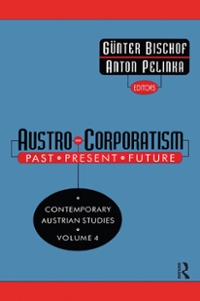Question
For my Macro Economics IA can you provide two graphs that relate to this IA. The article is this https://www.cbsnews.com/news/imf-dims-outlook-for-2023-global-economy-ukraine-russia-war/ Im testing out to see
For my Macro Economics IA can you provide two graphs that relate to this IA. The article is this https://www.cbsnews.com/news/imf-dims-outlook-for-2023-global-economy-ukraine-russia-war/
Im testing out to see who is the best at this and then I will text you back for other small assignments to help me with if you can handle this
In its recently released estimate for the world economy in 2023, the International Monetary Fund (IMF) identifies numerous significant risks and hurdles to economic recovery. The study was made public in January 2023, at a time when many issues are plaguing the world, such as the ongoing COVID-19 epidemic, geopolitical unrest, and climate change. We shall examine the IMF's prognosis and its effects on the world economy in this internal assessment. The IMF's research predicts that, compared to earlier projections, the global economy will grow more slowly in 2023. The IMF has lowered its growth forecasts for the year, citing a number of potential threats to the revival of the economy. These include the ongoing COVID-19 pandemic, supply chain disruptions, rising inflation, and geopolitical risks. The COVID-19 pandemic is still a significant worry for the world economy. Although the introduction of vaccines has been a good thing, there are still a lot of questions about how well-existing vaccines can protect against emerging viral types. The possibility of fresh lockdowns, travel restrictions, and other measures to stop the virus' spread has prompted the IMF to lower its GDP predictions as a result of this uncertainty. In the wake of the epidemic, supply chain disruptions have also been a serious concern for many organizations and industries. Global supply chain disruptions have led to product shortages, delivery delays, and increased costs for both enterprises and consumers. This has strained the world economy and may do so in the years to come as the epidemic continues to stymie international trade. Rising inflation is another element that the IMF recognized as a risk to economic growth. A number of causes, including supply chain disruptions, rising commodity costs, and increasing demand as the world economy recovers from the pandemic, have contributed to inflation rising in many nations. Both businesses and consumers may be concerned about inflation since it can diminish purchasing power and lower the total worth of money. Global economic stability is seriously threatened by geopolitical threats. The conflict between Ukraine and Russia was singled out by the IMF as a major risk that might disrupt commerce, investment, and supply chains as well as drive up energy costs and inflation. As a result of Russia's annexation of the Crimean Peninsula and the ongoing escalation of hostilities between the two nations, the war has intensified recently. This has given rise to worries about the influence on the larger region and the possibility of knock-on repercussions on the world economy. Another risk that the IMF identified as having the potential to interrupt economic activity is climate change. Severe weather conditions including droughts, floods, and wildfires, can impair agricultural productivity and disrupt supply chains. Inflation and higher food costs could result from this, which would have an effect on consumer spending and economic expansion. In addition, when specific companies and sectors adjust to new technologies and regulatory frameworks, the shift to a low-carbon economy could provide difficulties for them as well. Governments and policymakers will need to take action to assist economic growth and development in light of these difficulties. This can entail taking steps like increasing investment in infrastructure, R&D, and education and training. Governments can also think about putting measures in place to aid small and medium-sized businesses, which are important engines of economic expansion and employment creation. Policymakers must also be aware of the dangers posed by geopolitical unrest and climate change. This could entail actions like supporting sustainable land use and agriculture methods, diversifying supply chains, and making investments in renewable energy. Governments should pursue diplomatic initiatives to ease tensions and advance stability in the conflict-affected regions in order to lessen the dangers associated with geopolitical tensions. In conclusion, the IMF's outlook for the world economy in 2023 sheds light on a variety of risks and difficulties that could thwart economic recovery. There are initiatives that governments and policymakers may do to sustain economic growth and development, despite the fact that the COVID-19 pandemic, supply chain disruptions, rising inflation, geopolitical tensions, and climate change all represent serious dangers. Policymakers may work to create a more robust and sustainable global economy in the years to come by boosting small and medium-sized businesses, investing in infrastructure, and addressing geopolitical threats and climate change. |
Step by Step Solution
There are 3 Steps involved in it
Step: 1

Get Instant Access to Expert-Tailored Solutions
See step-by-step solutions with expert insights and AI powered tools for academic success
Step: 2

Step: 3

Ace Your Homework with AI
Get the answers you need in no time with our AI-driven, step-by-step assistance
Get Started


